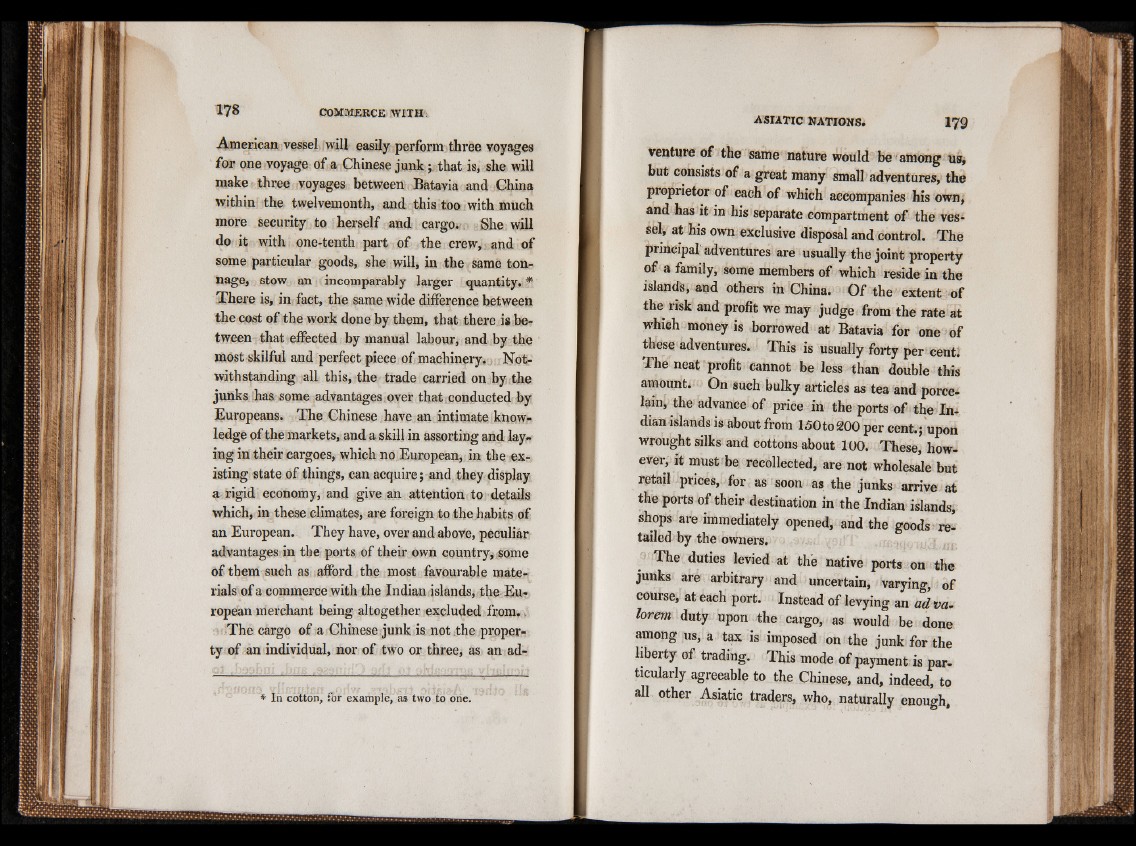
American vessel will easily perform three voyages
for one voyage of a Chinese junk ; that is, she will
make three voyages between: Batavia and China
within the twelvemonth, and this too with much
more security to herself and cargo. She will
do it with one-tenth part of the crew, and of
some particular goods, she will, in the same tonnage,
stow an incomparably larger quantity. *
There is, in: fact, the same wide difference between
the cost of the work done by them, that there is between
that effected by manual labour, and by the
most skilful and perfect piece of machinery., Notwithstanding
all this, the trade carried on by the
junks has some advantages over that conducted by
Europeans. The Chinese have an intimate knowledge
of the markets, and a skill in assorting and laying
in their cargoes, which no European, in the existing
state of things, can acquire; and they display
a rigid economy, and give an attention to details
which, in these climates, are foreign to the habits of
an European. They have, over and above, peculiar
advantages in the ports of their own country, some
of them such as afford the most favourable materials
of a commerce with the Indian ¡islands, the European
merchant being altogether excluded from..
The cargo of a Chinese junk is not .the property
of an individual, nor of two or three, as an ad-
* In cotton, for example, as two to one.
Venture of the same nature would be among us,
but consists of a great many small adventures, the
proprietor of each of which accompanies his own;
and has it in his separate compartment of the vessel;
at his own exclusive disposal and control. The
principal adventures are usually the joint property
of a family, some members of which reside in the
islands, and others in China. Of the extent of
the risk and profit we may judge from the rate at
which money is borrowed at Batavia for one of
these adventures. This is usually forty per centi
The neat profit cannot be less than double this
amount* On such bulky articles as tea and porcelain;
the advance of price in the ports of the Indian
islands is about from 150to 200 per cent.; upon
wrought silks and cottons about 100. These, however,
it must be recollected, are not wholesale but
retail prices, for as soon as the junks arrive at
the ports of their destination in the Indian islands,
shops are immediately opened, and the goods re*
tailed by the owners.
The duties levied at the native ports on the
junks are arbitrary and uncertain, varying, of
course, at each port. Instead of levying an ad va-
lorem duty upon the cargo, as would be done
among us, a tax is imposed on the junk for the
liberty of trading. This mode of payment is particularly
agreeable to the Chinese, and, indeed, to
all other Asiatic traders, who, naturally enough,